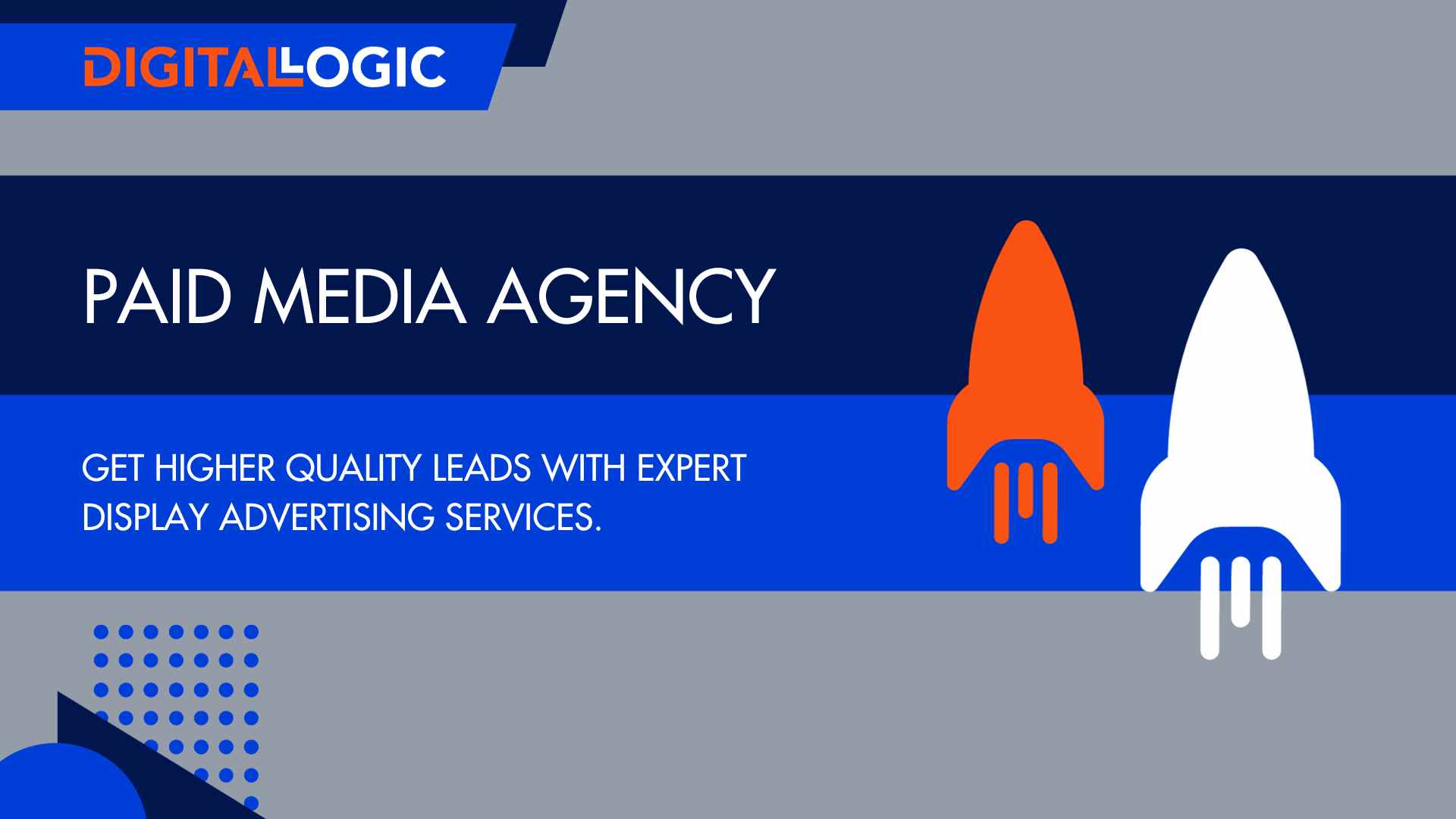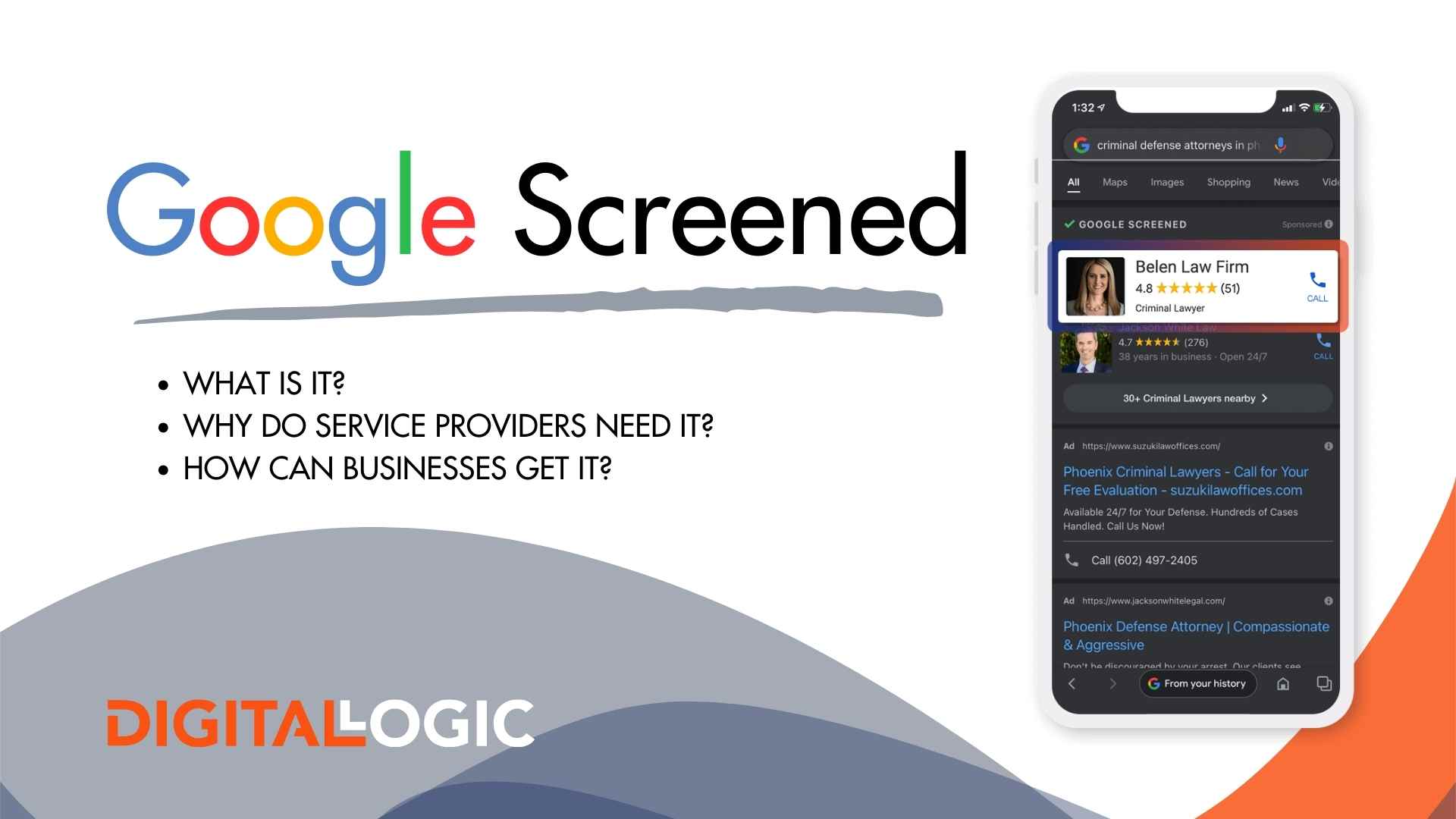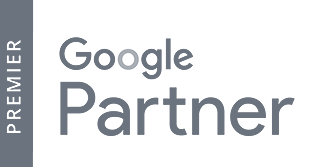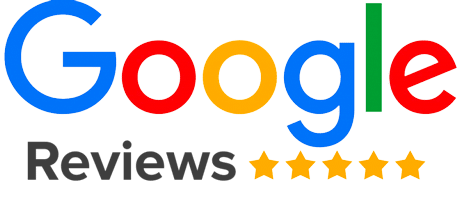
To keep your business expanding and thriving, you must attract as many potential clients and consumers as possible. This is common knowledge. What isn’t quite as common knowledge is how one goes about doing that. Especially in today’s world, where effective advertising techniques are constantly evolving. As such, many business owners are unaware of how, or otherwise cannot afford, to implement an effective marketing strategy. The solution is simple: web marketing.
In this post, our web marketing experts at Digital Logic will explain to you more about what web marketing is, how it works, and more importantly, why it works.
What is Web Marketing?
Table of Contents
ToggleWeb marketing essentially refers to any form of advertising that is done via the internet. This may be through the use of social media, blogging, email, videos, or search engine optimization. Put simply, web marketing is a cost-effective approach to marketing your business online and reaching potential customers or clientele. Web marketing encompasses a variety of strategies and methods, which we’ll go over in more depth later. From search engine optimization to content marketing, these techniques may help you successfully promote your company and drive revenue towards the goods and/or services you offer.
One of the most beneficial things about web marketing and what really sets it apart from traditional advertising is that it allows your company to reach out to everyone on the internet, including potential consumers, to communicate its message. Hypothetically speaking, you can make your voice heard all the way around the globe by simply utilizing the services the internet offers. With so many people accessing the internet on a daily basis, there are several opportunities available to get your product or service in front of those who may be seeking it. It’s a cost-effective approach to boosting your internet presence and brand exposure while also marketing your company to the appropriate client base.
Types of Web Marketing Methods
It’s a wise strategy to use the internet to interact with and engage consumers. How do you know where to begin, though? SEO, social media, email, PPC, and content marketing are some of the most popular choices, but they aren’t the only ones. Below, we’ll break down these options as well as other marketing methods that a business might use to acquire sales.
- SEO Services. When you ask Google a question, what determines the answer? When you search for a company or product, what determines the listings that show? SEO stands for Search Engine Optimization. It is a complex process that focuses on maximizing the number of visitors to your website. You can take actions that boost the website’s appearance on the list of results returned by search engines like Google and Bing. If your website’s content is SEO friendly, it will be indexed higher when the search engine’s web crawlers start visiting the site. This will increase the odds of the website ranking higher on search engine results pages. Every search engine has an algorithm that ranks content and gives consideration as to what is the most relevant. Thus, you can’t pay for Google to feel as if you are more relevant. SEO is different than SEM or search engine marketing in this way.
- SEM Services. Search Engine Marketing (SEM) is another process within the scope of digital marketing that works to promote your website. A business can easily gain traffic with more visibility on search engine results pages (SERPS) by advertising on Google Search Ads or Bing Search Ads. By using paid search advertising, you can buy advertising space on search engines if your website is unlikely to reach the first page of results organically. Instead of having to rank higher to get website traffic, you can pay per click to appear at the top of the searches of specific keywords.
- PPC Management. What does PPC mean? PPC, which stands for pay-per-click, is a pricing structure of advertising. It’s a model of internet marketing in which a business pays an advertisement fee each time someone clicks on their ad. In the simplest terms, it’s a way of buying visits to your site, rather than attracting them organically through search results.
- Email Marketing. One of the most common kinds of online marketing is email marketing, in which you compose emails regarding your product or service and then send them to a list of prospects. Email marketing is low-cost and may be quite specific. However, the disadvantage is that customers receive a large number of emails every day, so unless you nail your message down to the subject line, it may not even attract more than a second glance.
- Web Development Services. Did you know that nearly 40% of people won’t engage with a poorly designed website? Your website is so much more than just a page of information displayed online. It is a tool that should be used in order to draw traffic, convert traffic into customers, and maintain the relationship you have with your customers.
- Content Marketing. Content marketing is a strong, long-term approach to improving your brand’s online visibility. Prioritizing your content marketing efforts can also help you nurture a stronger relationship with your customers, keeping your interactions more effortless rather than repeating the same sales pitch which can inevitably be discovered on your company’s website. Companies that publish blogs on a regular basis receive four times the amount of internet traffic as those that do not. The rationale is straightforward. People are using the internet to look for answers, and whoever provides the most relevant, useful, and easy-to-understand answers to their inquiries wins the golden prize of their loyalty, trust, and hopefully, their business.
- Social Media Management. Worldwide budgets for social media advertising continue to increase drastically, reaching hundreds of billions of dollars per year. In other words, advertising on social media not only covers ad spend but produces sufficient revenue to encourage continuous and greater ad spend. Besides the substantial benefits of paid advertising, using social media for business can boost your website’s SEO by driving organic traffic to your site and boost your brand’s image by establishing, well, an image.
- Remarketing. This web marketing technique allows you to target users who have already visited your website in the past and encourage them to return and further engage with your brand. Selling to someone that you already know is interested in your product or service makes online advertising a breeze. Remarketing is designed to help you to reach the 98% of users who do not convert immediately. It allows the data to tell you what to specifically target the user with. Based on the user’s interaction with your brand, it will then adjust and show them relevant content, driving them to make a purchase.
- Video Advertising. Leveraging online display advertisements that incorporate videos can dramatically change the way your business is viewed by your customers. One of the biggest strengths of online video marketing is that it is visual and auditory in nature, meaning it’s easier for many users to remember as opposed to text-based content. 80% of customers remember a video they’ve watched in the last month. When customers are able to remember your video marketing content, they also remember your brand, which can translate to more sales for your company.
- Local Service Ads. LSAs are pay-per-lead, not click. This means you’ll be able to bid on a per lead basis rather than paying for clicks that don’t turn into engagements with your intake team. These ads serve through normal SERPs on mobile, desktop, and tablet devices, as well as through voice search. They rank based on positive reviews and proximity to the searcher.
- Geofencing Marketing. Geofencing marketing is a location-based marketing service that businesses use to engage their audience. They do so by sending relevant messages to smartphone users who enter a predetermined boundary or geographic area. It’s a mobile and desktop marketing strategy that gives local, multi-channel businesses the opportunity to interact via mobile devices with customers and potential clients who are nearby and more than likely ready to buy before they even walk through the door.
How is a Web Marketing Plan Developed?
There are several components that go into a successful internet marketing campaign. Just as any solid business plan must be developed, so must a solid web marketing plan. Here are a few practices for developing a successful web marketing plan.
Brand Yourself.
Defining your brand is the first step towards a successful web marketing strategy. It’s critical for you to first identify and understand the ins and outs of your brand before you sell it to your target market. Define what makes your company stand out. What do you have to offer that your rivals don’t? It’s also important to include a mission and values in your brand’s voice. What drives your company to open its doors every day and serve the public? Place emphasis on your company’s motivation for doing what it does.
Identify Your Audience.
You can’t build a successful web marketing strategy until you know who you want to target. Defining and evaluating your target audience is the next phase in your digital marketing strategy. To do this, you’ll need to answer questions about your prospective customers or clients. Where do they live? How old are they? What do they do and how much do they make? Further, how much are they willing to spend on your product or service? These kinds of questions can help you identify your audience and adjust your marketing techniques accordingly.
Define Your Goals.
Setting measurable goals is essential for determining whether your marketing plan is helpful in assisting your company’s growth. When setting goals, make sure to include both modest and large objectives. Smaller goals should help you stay on track to eventually meet your larger ones. For example, say you set a large goal to improve conversions by 30%. Gaining 10 new email subscribers might be a tiny step on the way to achieving that end goal.
Determine Your Budget.
Another essential aspect of a successful web marketing plan is to determine a budget. Before you begin executing your strategy, you must first determine how much money you have to spend on that strategy. With a set marketing budget in place, you can better allocate your funds to the services you require. You also need to determine how much you’re willing to spend on each avenue you plan on taking —whether it be SEO, PPC advertising, Google Local Service Ads, geofencing, or anything of the like—and how much you need to invest in order to get meaningful results. You’ll be able to develop a better digital marketing business strategy once you know how much money you have available in your budget and how much you need to spend on each prospective channel.
Decide On Marketing Methods.
Now that you know your goals, budget, and the audience you are trying to reach, it’s time to decide what avenues you will take to successfully reach them. Choosing the right method(s) to incorporate into your digital marketing plan is crucial. In case you missed it, we covered a number of the most popular digital marketing methods above.
Measure Your Results
A method for measuring results should always be included in a digital marketing campaign. Measuring results is critical for evaluating whether or not your previous efforts were at all effective. If you aren’t reaching your objectives, you have the option to reevaluate and reorganize your strategy in order to achieve better outcomes. In other words, you may tweak and improve your methods to establish more effective means of reaching customers.
Benefits of Web Marketing
Web-based marketing provides a number of advantages that traditional forms of advertising and marketing simply do not. To begin with, it is much more cost-effective than, say, a television ad or billboard. Web marketing is also incredibly more focused when it comes to reaching specific demographics. For example, you can set your message to appear on websites that your prospects are likely to frequent, to be visible in specific sectors and geographic areas, and, in some circumstances, to target by age or even education level.
Another major benefit to web marketing is that it is easy to track trends and edit and adjust to those trends. Advertisements on social media, banner ads, and other internet campaigns may be altered quickly and quietly. Web marketing campaigns can easily manage new prices, extra items, and time-sensitive purchases.
Other advantages to internet-based advertising are that it can reach ears and eyes across the world, is available 24/7, and it is much easier to monitor successes and failures than traditional marketing options.
Web Savvy Marketers
Now that you are familiar with web marketing, what it is composed of, and the benefits that come with it, you need to make sure you are properly utilizing it! If you don’t feel as though you are able to juggle all of the components of web marketing, like blogging, SEO, and social media, you may need to hire an expert. Luckily, there’s no need to look very far. Here at Digital Logic, our web marketing services will enable you to tap into new areas of growth, expand your team, and grow your revenue and profitability substantially. In fact, over the past four years, we have helped our clients improve traffic by an average of 200%. To learn more about the services our web-savvy marketers offer, reach out to Digital Logic today.





